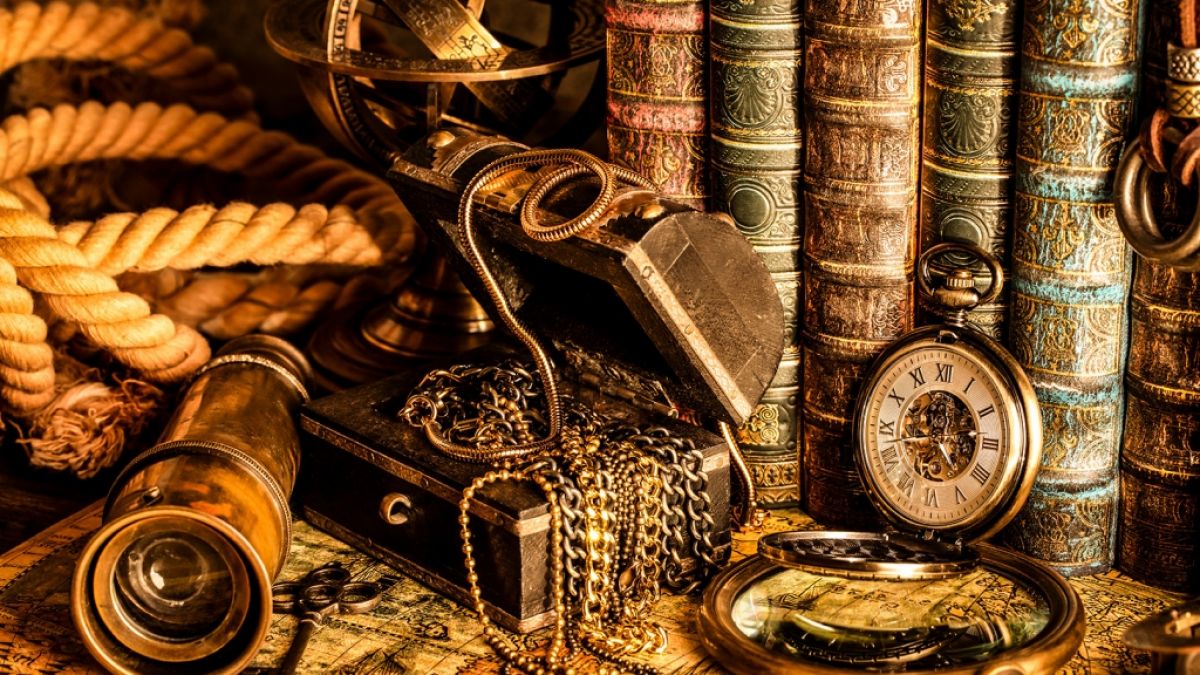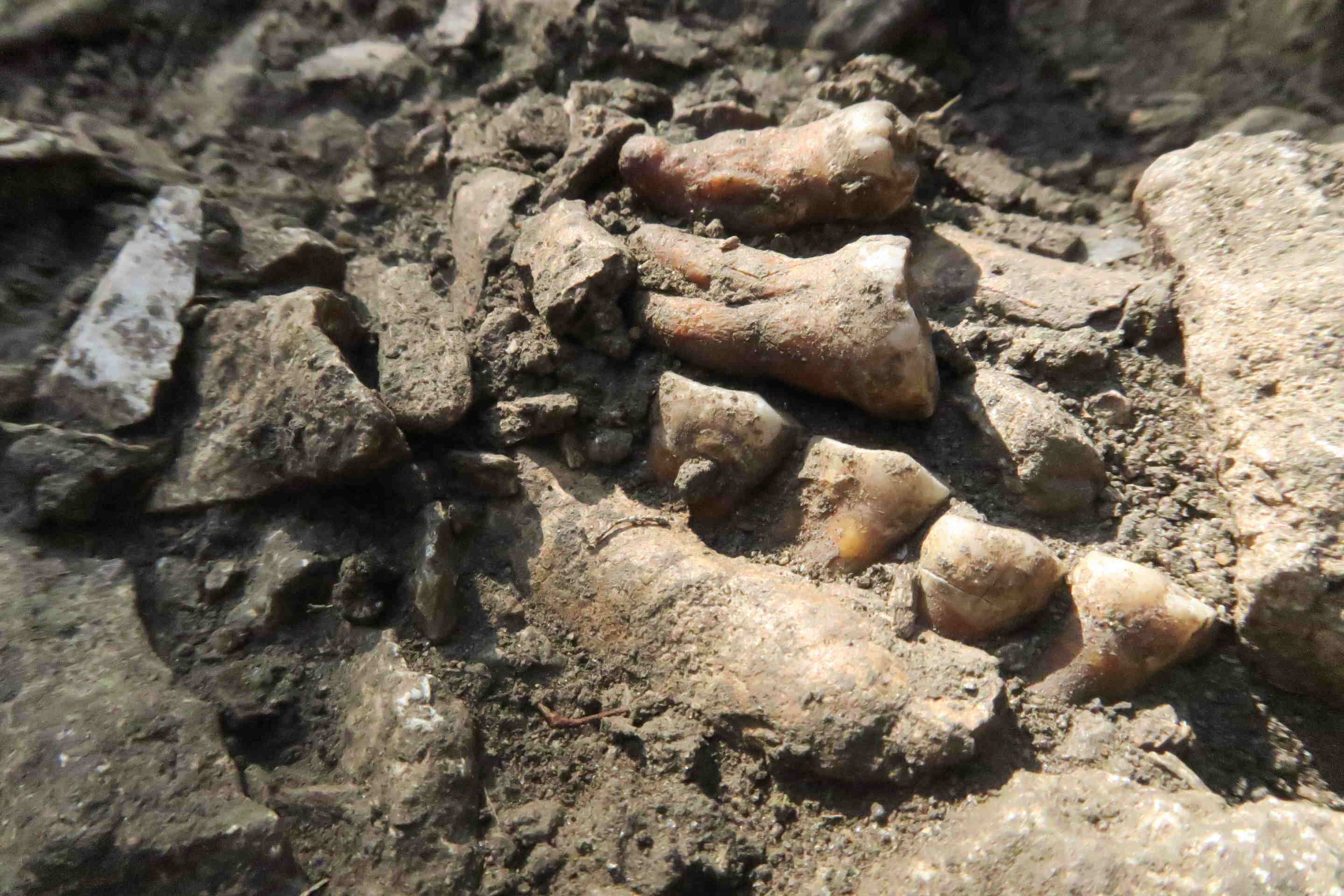
Did you know that Nazi gold refers to the gold and other valuables looted by the Nazis during World War II? This treasure, often shrouded in mystery, has sparked countless tales of hidden fortunes and secret stashes. But what happened to all that gold? Some of it was recovered, but much remains unaccounted for, fueling legends and conspiracy theories. Why is Nazi gold so intriguing? It's not just about the wealth; it's about the history, the people affected, and the ongoing search for answers. Ready to dive into 34 fascinating facts about Nazi gold? Let's uncover the truth behind one of history's most enduring mysteries.
Key Takeaways:
- Nazi gold, including precious metals and gems, was looted by the Nazis during World War II, sparking a decades-long mystery and ongoing search for the missing treasure.
- The pursuit of Nazi gold raises ethical and legal questions, impacting international relations and popular culture, while serving as a reminder of the horrors of war and the importance of justice.
The Mystery of Nazi Gold
Nazi gold has intrigued historians, treasure hunters, and conspiracy theorists for decades. The term refers to the gold and other valuables looted by the Nazis during World War II. Let's dive into some fascinating facts about this enigmatic treasure.
-
Nazi gold includes not just gold but also silver, platinum, and precious gems. The Nazis looted these valuables from banks, museums, and private collections across Europe.
-
The gold was often melted down and recast into ingots. This made it easier to transport and harder to trace back to its original owners.
-
Much of the gold was stored in the Reichsbank in Berlin. This was the central bank of Nazi Germany, where they kept their ill-gotten gains.
The Looting Operations
The Nazis had systematic operations to loot gold and other valuables. These operations were meticulously planned and executed.
-
Operation Bernhard was one of the largest counterfeiting operations in history. The Nazis aimed to destabilize the British economy by flooding it with fake banknotes.
-
The SS was heavily involved in looting Jewish properties. They confiscated gold, jewelry, and other valuables from Jewish families sent to concentration camps.
-
Gold teeth were extracted from the mouths of concentration camp victims. This gruesome practice added to the Nazis' hoard of precious metals.
The Fate of the Gold
What happened to the Nazi gold after the war remains a subject of speculation and investigation.
-
Some of the gold was recovered by the Allies. After the war, the Allies found and seized some of the Nazi gold stored in various locations.
-
A significant portion of the gold is still missing. Despite extensive searches, much of the looted gold has never been found.
-
The Merkers Mine in Germany was a major storage site. The Allies discovered a vast cache of gold and other valuables hidden in this mine.
The Role of Swiss Banks
Swiss banks played a controversial role in handling Nazi gold.
-
Switzerland was a neutral country during World War II. This neutrality made it an attractive place for the Nazis to store their gold.
-
Swiss banks accepted gold deposits from the Nazis. These banks have been criticized for their role in laundering looted gold.
-
The Bergier Commission investigated Switzerland's role. This commission found that Swiss banks had indeed accepted and stored Nazi gold.
Modern-Day Searches and Discoveries
Efforts to locate the missing Nazi gold continue to this day.
-
Treasure hunters have scoured Europe for hidden caches. Many believe that the Nazis buried gold in secret locations.
-
The "Nazi Gold Train" is a famous legend. According to this legend, a train filled with gold was hidden in a tunnel in Poland.
-
In 2015, two treasure hunters claimed to have found the Nazi Gold Train. However, their claims have yet to be verified.
Legal and Ethical Issues
The search for Nazi gold raises numerous legal and ethical questions.
-
Ownership of recovered gold is a contentious issue. Many believe that the gold should be returned to the families of the original owners.
-
International laws govern the restitution of looted art and valuables. These laws aim to return stolen items to their rightful owners.
-
Some countries have established commissions to handle restitution claims. These commissions work to identify and return looted valuables.
Cultural Impact
The story of Nazi gold has permeated popular culture.
-
Books and movies have been inspired by the mystery of Nazi gold. Titles like "The Monuments Men" explore the efforts to recover looted art and valuables.
-
Documentaries have investigated the fate of the Nazi gold. These films delve into the history and ongoing search for the missing treasure.
-
Video games have also featured Nazi gold as a plot element. Games like "Uncharted" and "Wolfenstein" incorporate the legend into their storylines.
The Human Cost
The pursuit of Nazi gold often overshadows the human suffering involved.
-
Millions of people were victimized by the Nazis' looting operations. Families lost their homes, businesses, and lives.
-
Survivors and their descendants continue to seek justice. Many are still fighting for the return of their stolen property.
-
The Holocaust was a tragedy of unimaginable proportions. The looting of gold and valuables was just one aspect of the Nazis' atrocities.
Recent Developments
New discoveries and investigations continue to shed light on the mystery of Nazi gold.
-
In 2020, a Polish foundation claimed to have found a hidden cache of Nazi gold. They believe it is buried in a palace in southern Poland.
-
Advanced technology is aiding the search for hidden treasures. Ground-penetrating radar and other tools are being used to locate buried caches.
-
Historians are still uncovering new information about the Nazis' looting operations. Archival research continues to reveal details about the scale and methods of the looting.
The Ongoing Search
The quest for Nazi gold is far from over.
-
Many believe that significant caches of gold remain hidden. Theories abound about secret locations and buried treasures.
-
International cooperation is crucial in the search for Nazi gold. Countries must work together to locate and return looted valuables.
-
The search for Nazi gold is a race against time. As survivors age, the urgency to find and return stolen property increases.
The Legacy of Nazi Gold
The story of Nazi gold is a reminder of the horrors of war and the importance of justice.
-
The looting of gold was part of a larger pattern of Nazi crimes. It was one aspect of their systematic plunder and destruction.
-
The search for Nazi gold is about more than just treasure. It is about seeking justice for the victims and their families.
-
The legacy of Nazi gold continues to impact international relations. Countries are still grappling with the consequences of the Nazis' actions.
-
The mystery of Nazi gold captivates the imagination. It is a story of greed, tragedy, and the enduring quest for justice.
The Mystery Continues
Nazi gold remains one of history's most intriguing puzzles. Despite numerous searches, much of this treasure is still missing. Some believe it's hidden in secret bunkers, while others think it was smuggled out of Europe. The mystery fuels countless theories and expeditions.
Historians and treasure hunters alike are captivated by the tales of lost gold. Each discovery, whether a small artifact or a hidden stash, adds a piece to the puzzle. Yet, the full story of Nazi gold may never be known.
This enduring mystery reminds us of the dark times during World War II and the lengths people went to protect or steal wealth. As new evidence emerges, the legend of Nazi gold continues to grow, keeping us all guessing.
Frequently Asked Questions
Was this page helpful?
Our commitment to delivering trustworthy and engaging content is at the heart of what we do. Each fact on our site is contributed by real users like you, bringing a wealth of diverse insights and information. To ensure the highest standards of accuracy and reliability, our dedicated editors meticulously review each submission. This process guarantees that the facts we share are not only fascinating but also credible. Trust in our commitment to quality and authenticity as you explore and learn with us.


